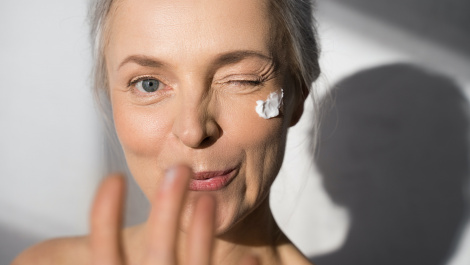The most common symptom of the menopausal transition is hot flashes. It feels like a flash of heat through your chest, neck, and face, and can cause red, blotchy skin. Your heart may beat faster, and you may sweat as your body tries to cool down. Once the hot feeling lets up, you might feel a bit damp and chilly.
Hot flashes can happen as infrequently as several times a week or as frequently as several times an hour. They can last between 30 seconds and 10 minutes. And this can go on for seven or more years whilst your body is transitioning through to menopause.
More than just ‘a little hot under the collar’.
There are several factors involved with hot flashes. These include hormonal changes that happen during the menopausal change, but that’s not all. Your body’s thermostat located in the part of your brain called the “hypothalamus” also plays a role. It’s thought that during menopause the hypothalamus naturally becomes more sensitive to slight changes in body temperature, thus contributing to these flashes of heat.
Some things that seem to increase the risk of experiencing more frequent or severe hot flashes are smoking and higher BMIs (Body-Mass Index - essentially your weight compared with your height). This means that quitting smoking and being in a healthy weight range can help many aspects of your health, including hot flashes.
Here’s how TheOptimal.me team chills out.
First of all, see if you can pinpoint your triggers - once you know them you can avoid them. For some women triggers can be alcohol, spicy foods, and/or caffeine (sorry about this!). Some research shows that mind-body practices like mindfulness meditation, yoga, and tai chi may help improve symptoms.
For daytime hot flashes carry a portable fan and dress in layers that you can easily remove. For nighttime hot flashes drink a small amount of cold water before bed and keep your bedroom cooler.
When overheating is more than just a nuisance.
Sometimes hot flashes are more than an inconvenience. Nighttime hot flashes (night sweats) can disrupt your sleep and lead to sleeping problems. Also, hot flashes seem to be associated with increased risk of heart disease and bone loss.
If hot flashes are particularly bothersome for you, be sure to see your doctor or medical practitioner to discuss the many options available to you.
Click this link for more information on menopause, and have a look at the benefits of soy.







Comments